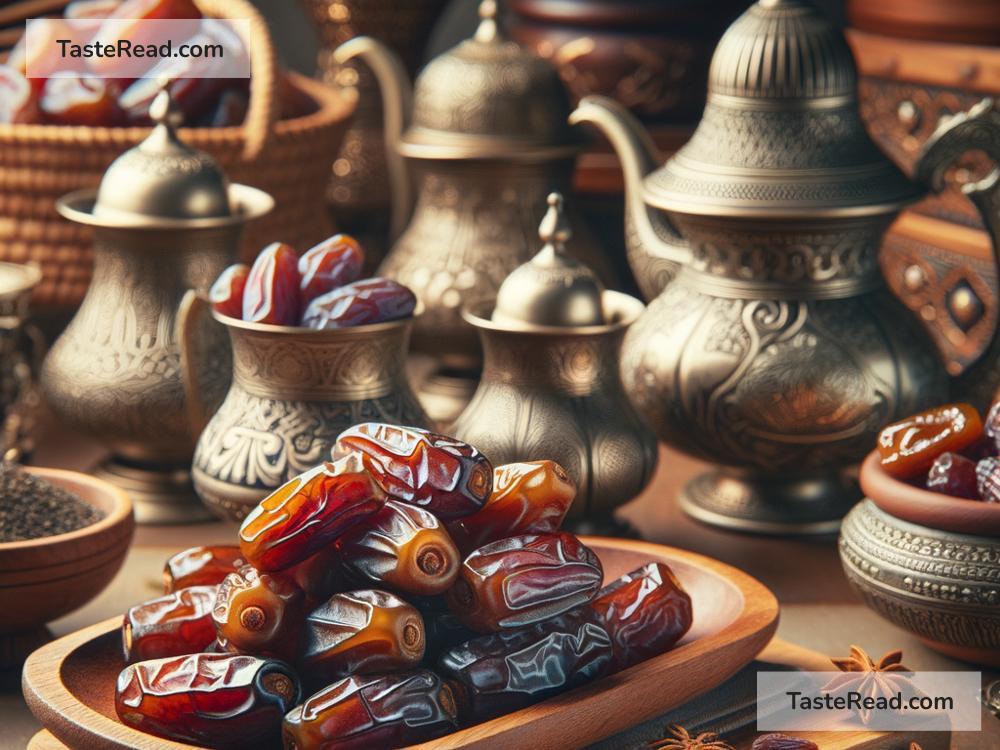The Historical Significance of Dates in Middle Eastern Diets
The Middle East is a region rich in history, culture, and culinary traditions. One food that has remained a staple for centuries is the humble date. This sweet, chewy fruit has an extraordinary story and plays a crucial role in the diets, traditions, and economies of the region. Whether eaten fresh or dried, dates hold more than just nutritional value—they are deeply tied to the identity and history of the Middle East.
A Fruit of Ancient Civilizations
Dates have been cultivated in the Middle East for over 8,000 years, making them one of the oldest cultivated fruits in human history. The earliest evidence of date farming can be traced to Mesopotamia (modern-day Iraq) and ancient Egypt. These regions relied on the fruit for sustenance, trade, and agriculture.
In ancient Mesopotamia, dates were considered a gift from the gods. They grew abundantly along the banks of the Euphrates and Tigris rivers due to the fertile soil. In Egypt, dates gained cultural significance as food offerings to royalty and were even placed in tombs to nourish the dead in the afterlife. This shows that dates were not just an ordinary food—they were an essential part of life and spirituality.
Survival Food in Harsh Climates
The importance of dates in the Middle East also stems from their ability to provide nourishment in harsh desert environments. The Middle East is home to vast deserts and arid lands, where food and water can often be scarce. Dates, however, are perfectly suited to the region’s conditions.
Date palms are hardy trees that thrive in hot temperatures and require minimal water. Their fruit is calorie-dense, full of natural sugars, and packed with essential nutrients like potassium, magnesium, and fiber. A handful of dates can provide enough energy to sustain a person for hours, making them an ideal survival food for desert travelers.
Historically, Bedouins and nomads relied on dates during long journeys across the desert. Paired with water, dates offered a simple yet life-saving source of energy and hydration. This ability to sustain life in harsh environments cemented their importance in Middle Eastern culture.
Dates and Religion
Dates are not only an ancient fruit—they also have spiritual significance in the Middle East, especially in Islam. The Quran mentions dates several times, highlighting their importance as a blessed food. For Muslims, dates hold immense symbolic and practical value, particularly during Ramadan.
Ramadan is the holy month of fasting observed by Muslims worldwide. During this month, fasting begins at sunrise and ends at sunset each day. Tradition suggests breaking the fast with dates and water, following the example of the Prophet Muhammad, who is said to have done the same. This practice is not only cherished spiritually but also supported by science—dates provide a quick boost of energy after a day without eating.
Dates are also distributed as gifts during religious occasions, including Eid celebrations. Their role in Islam illustrates how food can be deeply connected to faith, rituals, and community.
Economic Importance
Beyond their cultural and religious significance, dates have long been a cornerstone of Middle Eastern economies. The date palm is often referred to as the “tree of life” because it provides not only fruit but also materials for various essential purposes. The trunk can be used for construction, the leaves for weaving mats and baskets, and the seeds for animal feed.
Date farming became an important agricultural industry in many Middle Eastern countries, especially Saudi Arabia, Egypt, Iraq, and Iran. Even today, these countries are among the world’s largest producers and exporters of dates. People come together to harvest the fruit every year in a tradition that combines labor, celebration, and community spirit.
In addition, dates have become a global commodity sold in markets across the world. Many Middle Eastern families take pride in growing dates and sharing them with friends, relatives, and visitors. Offering dates to guests is a gesture of hospitality and kindness that transcends generations.
Modern-Day Use
Today, dates are not only consumed traditionally; they are also used creatively in modern cuisine. Across the Middle East, they are transformed into syrups, desserts, and snacks. For example, date-stuffed pastries and date syrup (called “dibs” in Arabic) are popular in many households.
Dates have also gained recognition worldwide as a “superfood” due to their high nutritional value. Health-conscious people around the globe are now adding dates to smoothies, energy bars, and baked goods. Their versatility ensures that they continue to be enjoyed in both traditional and innovative ways.
Conclusion
Dates are not just a sweet fruit but an essential symbol of Middle Eastern identity, history, and resilience. From their roots in ancient civilizations to their role in religion and survival, dates have been deeply woven into the culture of the region. They have sustained generations in the harsh desert climate, connected communities through trade, and brought spiritual meaning to celebrations.
Their significance persists in modern times, not only as a vital part of Middle Eastern diets but also as a global food loved for its health benefits and delicious taste. Whether you eat them fresh, dried, or dipped in syrup, remember that dates carry thousands of years of history within their small, sweet bites.
